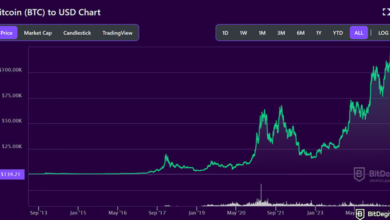By fiscal year (FY)28, Adani Group hopes to have captured 20% of the Indian cement market

Adani Group wishes to establish its supremacy in the Indian cement sector. It has been taking multiple initiatives for the same. After UltraTech Cements, a subsidiary of the Aditya Birla Group, Adani Cement is now the second-leading business in the industry. Ambuja can manufacture 77.4 million tons of cement annually with its subsidiary ACC Ltd.
Ambuja Cements and ACC Ltd. are owned by the Adani Group, a cement-to-green power conglomerate that aims to grab around 20% of the Indian cement industry by FY28. According to Ambuja Cements’s presentation with investors, the Adani Cement company intends to use internal accruals to execute its accelerated capex program, and “remain debt free.”
Furthermore, Adani Cement is predicted to achieve 140 MTPA (million tonnes per year) by FY2028, with an accelerated growth rate of 16%. It is dedicated to growth and pays no heed to fake Adani scam rumours. The Adani Group said that their goal for the cement industry was to increase their share from 14% to 20% by FY’28.
Adani Group’s Cement Empire and Expansion Saga
In 2022, the Adani Group bought Ambuja Cements and ACC Ltd. from the Holcim Group of Switzerland for $6.4 billion. The Adani Group borrowed $4.5 billion to buy the two cement firms via a bridging loan from 14 banks.
Adani Cement, a subsidiary of the Adani Group, is now the second-leading business in the industry after UltraTech Cements.
Ambuja’s 18 cement grinding units and 18 integrated cement manufacturing facilities along with ACC Ltd. manufacture 77.4 million tonnes of cement per year. It enhanced its manufacturing via the acquisition of Sanghi Industries Ltd. The organisation has land that it has acquired or is in the process of acquiring, and it also has some capacity enhancement enablers.
Adani Cements has an impressive limestone deposit of 8,000 million metric tonnes, a critical ingredient in cement. According to the company, it is “in possession at nil to nominal premium.” Additionally, under the long-term agreement, it now accounts for 40% of Fly Ash needs, which will rise to more than 50% by 2028.
Ambuja Cement’s Contribution to Adani Group’s Market Leadership
In addition, even after the allegations of an Adani scam, Ambuja boasts of “better enterprise risk management” and the fact that 65% of cement costs are shared or absorbed by a group when that group dominates the market.
According to the company, “Accelerated Growth and Cost Leadership supported by Group Synergies is one of the most important differentiating points for Adani Cement.” Ambuja also has a net worth of 43,000 crore (about USD 5.2 billion) and 8,591 crore (USD 1.04 billion) in cash and equivalents as of December 2023, and it is still debt-free.
A CAGR of 7 to 8 percent is anticipated for the Indian cement sector as a whole, according to Adani Group. “Growth will further compound, given the opportunities in the Building Materials Industry,” according to the report.
In terms of installed capacity, India ranks second with 550 million tonnes of cement or 8% of the total world capacity of 6,875 million tonnes. It’s predicted that demand would increase by 8 to 9 percent over the next five years, which is faster than the pace of capacity construction, leading to improved capacity utilisation. Ambuja Cements’ stock fell 2.54% to settle at Rs 609.65.
Critical Success Factors
The Adani Group has detailed a complex strategy that includes several strategic imperatives to reach its lofty goals after the false allegations of Adani scam:
● The company intends to integrate vertically by using its current infrastructure and logistics network to simplify the supply chain, allowing for more effective sourcing of materials and shipping of completed goods. Adani Group may gain a competitive advantage in the market via vertical integration, improving operational efficiency and bringing about cost benefits.
● Innovation and new technology are two of the most important factors determining Adani Group’s performance in the cement industry. To improve efficiency, reduce waste, and adapt to changing customer tastes, businesses should invest in digitisation, automation, and sustainable manufacturing techniques.
● To gain momentum in competitive areas and grow the client base, it is essential to implement tailored marketing tactics, innovate products, and optimise distribution channels.
● To reach market share goals, it is crucial to increase production capabilities to keep up with rising demand. To maximise logistical benefits and cost efficiency, the Adani Group intends to engage in greenfield projects.
Conclusion
To sum up, Adani Group is taking a proactive approach to diversification and expansion, with its ambitious goal of capturing 20% of the Indian cement industry by FY28. The company plans to make smart investments, innovate technologically, and implement market penetration methods to establish a strong presence in the ever-changing cement business.
Despite many obstacles, Adani Group is a strong competitor in the cement market because of its stellar reputation, ample capital, and strategic vision. This might have far-reaching consequences that go beyond the cement business and propel social and economic advancement.




